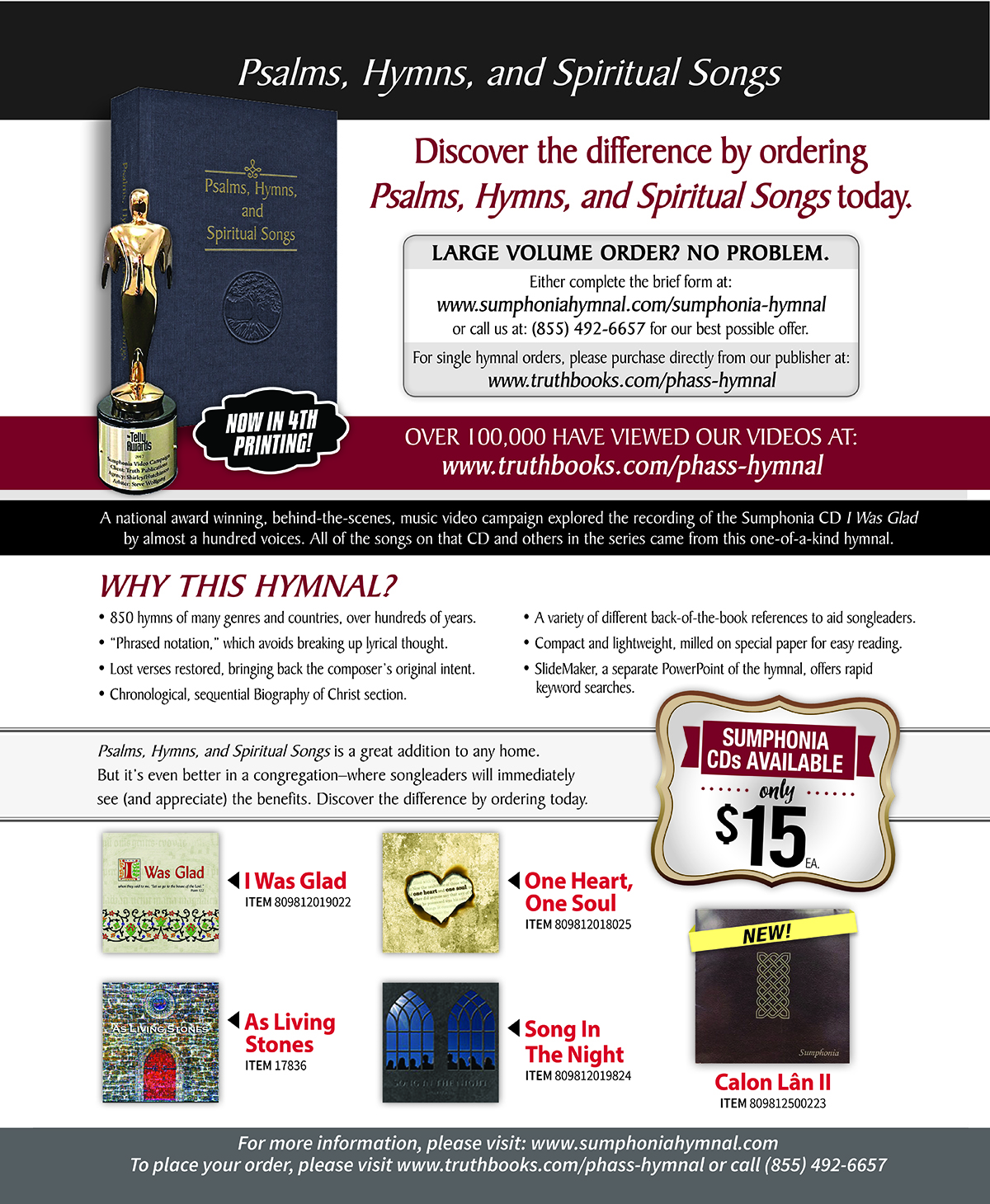

by David Flatt
Synopsis: As we begin a new series, this article offers background information on the apostle Paul, his writing style, and introduces his letter to the saints in Rome.
The apostle Peter once wrote that some of Paul's letters contained teaching which was hard to understand (2 Pet. 3:15-16). The difficulty of understanding some of Paul's writings seems especially evident with his letter to the Romans. Many, including this writer, have struggled to understand this epistle. It is arguably every bit as challenging as the Apocalypse of John.
In verse-by-verse studies, we tend to get lost in what an author is trying to explain. For example, we may become distracted by trying to define Greek terms and concepts. We consider other passages where the same words are used. We will pick a letter apart word by word, phrase by phrase, but never learn how they fit together to form broader themes.
From symphonies to tributaries, many analogies have been used to describe Paul's style of writing. He frequently introduces, or alludes, to ideas which he explains in greater detail later in the letter. Paul does not write everything there is to know about a given concept each time he references it. He explains concepts as he writes, and gradually builds his arguments. If we do not keep this in mind, we will "get lost in the weeds."
Some have mistakenly described Paul's style as "rambling," but this is an inaccurate and unfortunate assessment. Paul's comments are never coincidental. He does not carry terms in his pocket and randomly toss them into his letter. Paul does not use Old Testament citations as mere proof-texts but brings to bear entire Old Testament concepts and themes by briefly mentioning a passage from the Old Testament. In the book of Romans, Paul methodically and meticulously summarizes how the promises God made to Abraham were fulfilled in the Messiah and by the Spirit.
Christians are well acquainted with the apostle Paul. We read from his pen nearly each time we assemble. We study his life and analyze his writings. More than any other Christian writer, Paul profoundly shapes our understanding of the gospel. Yet, due to our familiarity with the apostle, we may take him for granted and not fully appreciate his influence.
Like Jesus and the rest of the New Testament authors, Paul was Jewish. Born in the city of Tarsus of Cilicia (located in modern-day south-central Turkey), Saul/Paul was educated in Jerusalem by Rabbi Gamaliel, receiving extensive training in the Torah, Mishna, and Midrash. In addition to his impressive academic credentials, he joined himself with the Jewish sect of the Pharisees. Although a Roman citizen, as a devout Jew, Paul would have found the Roman Empire and the assimilation of Hellenistic culture within Israel repulsive.
In addition to being a Jewish scholar/rabbi, Paul became a convert to Christianity. Formerly, he was violently opposed to the Christian faith, which he counted as heresy. While traveling to Damascus, he had a confrontation with the resurrected Lord (Acts 9). This event changed Paul's life. Turning from his violent opposition to Christianity, he became a proponent of the Way.
From the standpoint of the unbelieving Jews, Paul's conversion was incomprehensible. It appeared as though, in becoming a Christian, Paul had nothing to gain and everything to lose. This up-and-coming Jewish rabbi walked away from a bright future. Yet, Paul's conversion was genuine, giving him credibility, serving as supportive evidence of the resurrected Lord.
Paul often referenced his background in his preaching and writings. On one momentous occasion, he was at the center of a riot at the Temple in Jerusalem. This arrest would set into motion events that would take Paul to Rome. When Roman soldiers heard what was happening, they quickly came and took Paul into protective custody. When given an opportunity to speak, Paul said:
"I am a Jew, from Tarsus in Cilicia, a citizen of no obscure city. I beg you, permit me to speak to the people." And when he had given him permission, Paul, standing on the steps, motioned with his hand to the people. And when there was a great hush, he addressed them in the Hebrew language, saying: "Brothers and fathers, hear the defense that I now make before you." And when they heard that he was addressing them in the Hebrew language, they became even more quiet. And he said: "I am a Jew, born in Tarsus in Cilicia, but brought up in this city, educated at the feet of Gamaliel according to the strict manner of the law of our fathers, being zealous for God as all of you are this day. I persecuted this Way to the death, binding and delivering to prison both men and women, as the high priest and the whole council of elders can bear me witness. From them I received letters to the brothers, and I journeyed toward Damascus to take those also who were there and bring them in bonds to Jerusalem to be punished" (Acts 21:38-22:5, ESV).
Paul's background as a Jewish scholar, persecutor, and convert is critically important in understanding his writings, especially his letter to the Romans. He knew the law and the prophets. Yet, when the Messiah came, and the kingdom was established, Paul did not recognize it but was violently opposed to Jesus, His kingdom, and His people. This lack of recognition by Paul proves a point he often made in his letters: despite their exalted privileges bestowed upon the Israelite people, few recognized Jesus as the Messiah, comprehended the nature of His kingdom, or understood the implications of His death (1 Cor. 1:17-24; 2:7-8).
A full understanding of the cross would require the resurrection of Jesus, the Holy Spirit guiding the thoughts and words of the apostles, and a divine confrontation by the resurrected Jesus with Paul (Acts 22:6-21; 1 Cor. 15:8-10; 1 Tim. 1:12-16).
While the gospel accounts are invaluable, Paul leads us to a deeper understanding of the Messiah. He interprets the Old Testament through the cross of Jesus. Therefore, to better understand Paul and the meaning of the cross of Jesus, it is worthwhile to seek a better understanding of the Old Testament.
Three major themes are found in Paul's letters. They are connected, and build on each other. Recognition of this helps us better understand the flow of Paul's thoughts, especially in Romans. Consider the following.
Monotheism is the concept that there is only one God. The word "god" is a general term signifying a super-human deity. When speaking of God, Paul refers to the one Creator. As presented in the Bible, monotheism involves what the Creator accomplished through the Messiah and by the Spirit. In Romans, Paul explains the news of what the Creator did for the world by Jesus Christ (Rom. 1:1-6).
There was a reason why monotheism was Paul's starting point for teaching the Gentiles. They were polytheistic, idolaters who did not believe in the Creator. Before Paul could tell Gentiles about the Messiah, he first had to inform them about the Creator who sent the Messiah.
For example, Paul shared the gospel with idol worshippers in Corinth who obeyed when they learned what their Creator had done for them through Jesus, the Messiah. They turned from idols to worship the true, living God. In his second epistle, Paul affirmed a monotheistic worldview:
Therefore, as to the eating of food offered to idols, we know that "an idol has no real existence," and that "there is no God but one." For although there may be so-called gods in heaven or on earth—as indeed there are many "gods" and many "lords"— yet for us there is one God, the Father, from whom are all things and for whom we exist, and one Lord, Jesus Christ, through whom are all things and through whom we exist (1 Cor. 8:4-6).
Modern society has become increasingly skeptical of God's existence. A teenager recently asked in a Bible class, "How do you teach someone who does not believe in God?" American society certainly has changed over the years. There was a time when most people believed in God, read their Bibles, and attended church. Those days are long gone. My generation is mostly unfamiliar with God, the Bible, and organized religion. As Christians, we often wonder how to reach people like this, feeling as if there is no common ground to start a conversation. Perhaps we need to get back to the basics of Paul's approach with Gentiles. He began by teaching about the Creator and what He accomplished for humanity through the Messiah and by the Spirit.
Building on the concept of monotheism, election identifies the one people of God. With whom does the Creator share a relationship? God has chosen to have a relationship with men and women—the pinnacle of His creation—who bear His image (Gen. 1:27). Collectively, we turn to idols and live in sin, sullying our image and breaking our relationship with Him. What can be done to restore our image and reconcile our relationship? Fundamentally, we must believe what the Creator accomplished through the Messiah and by the Spirit. Of course, belief is multifaceted; but, becoming part of God's elect is just this simple.
In Romans, the inspired apostle explains that God's elect is not just the biological family of Abraham. As a result of what God accomplished through the Messiah, everyone can become part of God's family by faith (Rom. 1:16-17). In chapter eight, Paul explains how the Creator predetermined to call willing humanity into His family through the Messiah. Those who answer the call through faith are justified or brought into the family of God. The good news of the gospel is that anyone who answers this call can become part of God's elect. Since God is loyal to those who are loyal to Him, Paul declares nothing can be done to harm God's elect (Rom. 8:29-39).
The concept of "destiny" involves the future of the Creator's people. The theological term for this is eschatology; however, the word "destiny" is a bit less intimidating. What are God's plans for those who have been elected into His family? What is the future of the elect? Simply stated, it is eternal life. This hopeful destiny is to impact how we live. Our morality and ethics should be transformed by the hope of eternal life.
The purpose of the one people of God, the elect, is to glorify the Creator. Individually, we exemplify His loving nature in our lives. Collectively, we declare His rule through our worship. By godly living and worship, the elect draw the world to the Creator. The blessedness of our present existence foreshadows a glorious future eternal life. Through transformed lives, we reflect the glory of the Creator to the world. We become symbols of a hopeful destiny that attracts idolaters to become believers in what the one Creator accomplished through the Messiah and by the Spirit.
Paul wrote this epistle while he was traveling, preaching, and collecting money for the needy saints in Jerusalem (Rom. 15:25-33; Acts 19:21). He planned to share these funds with the saints in Jerusalem and then travel to Rome (Acts 19:21). From Rome, he intended to go to Spain (Rom. 1:11-14; 15:24, 28).
Geographically, Rome could become a platform for the westward expansion of the gospel. There was a time when he used Antioch as a base of operation: his journeys began and ended at Antioch. Yet, that seems to have changed after a significant dispute over circumcision (Acts 14:26-15:41; Gal. 2). Apparently, Paul considered Rome a potential base for taking the gospel to the western end of the Mediterranean. Several references in this letter give us a glimpse of Paul's divinely assigned task of spreading the gospel to the Gentile world (Acts 9:15; 22:15, 21).
The epistle to the saints at Rome is different from the rest of Paul's writings recorded in the New Testament. He had not been to Rome when he wrote this letter. He did not establish the churches in Rome. While he knew some saints in Rome, as indicated at the end of his epistle, a lack of personal relationship with the church at Rome influences his writing. For example, Paul is careful in his treatment of certain subjects, not being as forceful as he is in his letter to the Corinthian church or as affectionate as he is in his letter to the church at Philippi.
The city of Rome was built on seven hills. Augustus' imperial palace had been built on one of these hills. The imperial palace of Nero, emperor when Paul wrote the letter, occupied another. The Roman Forum dominated a third. The Tiber River flowed through the low-lying areas of the city where poorer city-dwellers lived. Most likely, in these low-lying areas is where the saints assembled and where this letter was first read.
The last chapter of the letter indicates that believers met at several houses within the city. For this reason, there may have been multiple congregations in Rome. In a city of over one million people, saints likely numbered a few hundred or less. They came from both Jewish and pagan backgrounds. Six or eight years before this letter was written, Emperor Claudius had expelled the Jews from the Imperial city (AD 54). This is the reason Priscilla and Aquila had traveled to Corinth (Acts 18:1). However, at the death of Claudius and the ascension of Nero, some Jews returned to Rome. This is one reason why Paul was concerned with bringing Jewish Christians and Gentile Christians together.
In the coming year, we will devote the Doctrine Column to a study of Romans. The purpose of this twelve-article series is not to delve deeply into the minutiae of Greek words or to give a dissertation on every concept introduced by Paul. Rather, it will attempt to convey the overall themes of the letter. Hopefully, readers will gain a better understanding of Paul's flow of thought from chapter to chapter. If done correctly, these articles will help spur more in-depth study in the letter. Due to space limitations, lengthy text from Romans will not be quoted in each article. For this reason, opened Bibles are encouraged for reading each article.
Author Bio: David and his family began laboring with the Fry Road church of Christ in Houston, TX in 2019. The church website is fryroad.org. He can be reached at dflatt85@yahoo.com.

